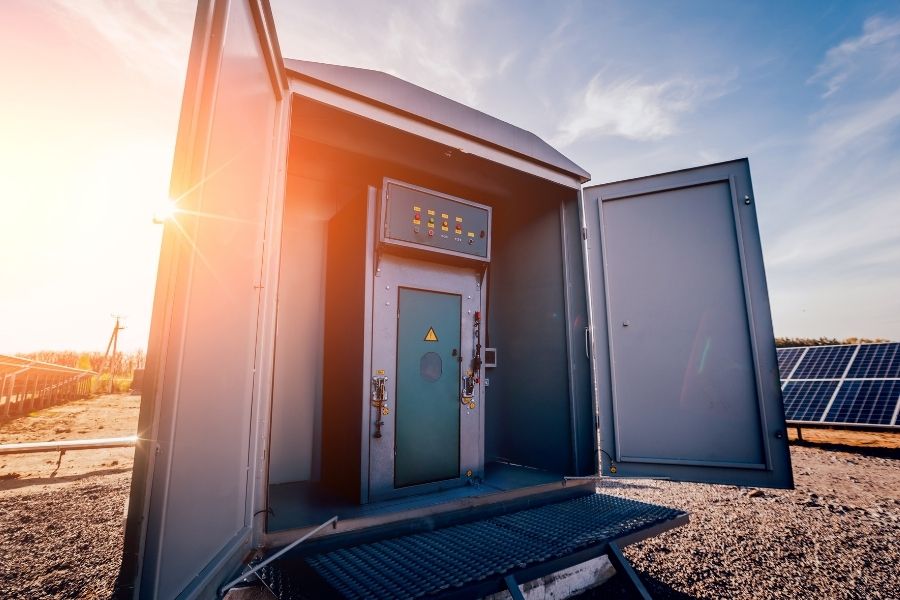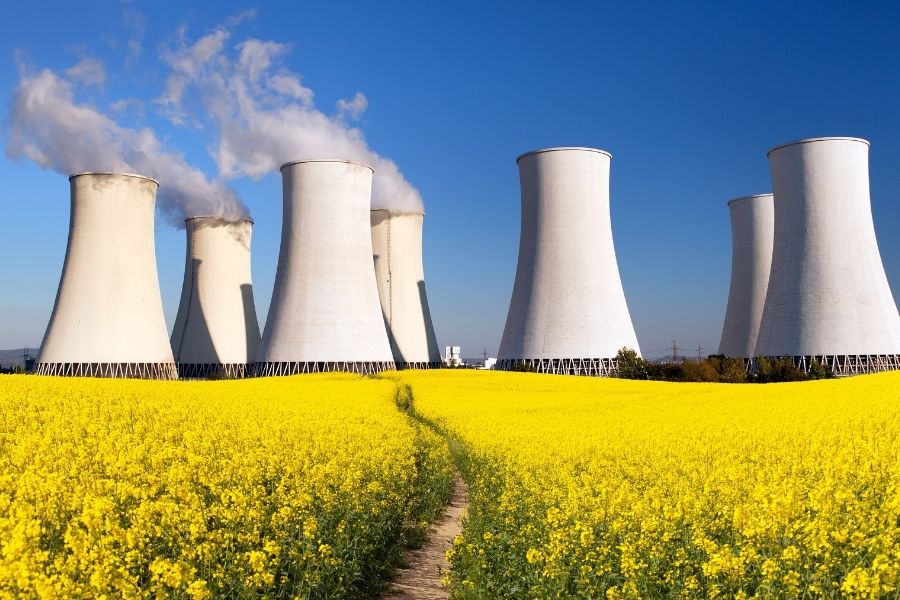Is Australia Ever Actually Going to Embrace Nuclear Energy (and Should It)?
Australia has recently seen the national conversation injected with a new push by some for the introduction and utilisation of nuclear energy going...
3 min read
![]() Solar Trust Centre Team
:
Feb 10, 2022 9:00:00 AM
Solar Trust Centre Team
:
Feb 10, 2022 9:00:00 AM

In July a fire broke out at the Tesla battery project in Moorabool, a locale near Geelong, Victoria. Fortunately, the fire was put out before too long, but it certainly wasn't an ideal piece of news for those pushing for more public support for battery farms. You can't change the past, but you can learn from it - and this has become a teachable moment. So let's look now into whether battery farms are dangerous and how the infrastructure of other energy sources stacks up in comparison.

Any particular battery farm could encounter an issue. Obviously, that has occurred for some reason at Moorabool recently. But in terms of the science of battery farms generally, they are safe. Suffice to say, extensive research has occurred prior regarding the technology behind battery farms. Their safety is also evidenced by the fact there are a number of battery farms already in operation in multiple countries, and there are plans to bring many more online soon.
The conversations that have been generated since this event surrounding energy sources have been very worthwhile. This is because while the technology behind battery farms is safe, the reality is the same can't be said for other types of energy infrastructure. It's worthwhile to unpack this further in discussing other energy sources now.
Coal is known to be a dirty fuel. Its contribution to CO2 emissions is widely recognised. But unfortunately, it's not just with rising global temperatures - though horrible that consequence of course is - that the drawbacks of coal use are apparent. To those who've lived near the power plants, the impact of coal power production can be very direct and apparent. Due to the fine particle pollution that occurs when a coal power station emits, a number of harmful substances such as sulfur dioxide can make their way into the air.
It's no surprise then that higher rates of respiratory diseases have occurred among residents living near a coal power plant. And unfortunately, many of these diseases have been very serious, with numerous people contracting lung cancer and sadly even dying as a result of these illnesses. It's yet another illustration of why those arguing for a future for coal in Australia really need to reflect on how much harm coal has already caused in the past.
In recent times some politicians in Canberra have effectively anointed natural gas as the saviour of Australia's energy sector. There is no controversy surrounding the fact that natural gas is indeed cleaner than coal. But at the same time, there's also no disputing that having an apple for dessert will be healthier than a whole tub of ice cream.
Natural gas plants can emit around 93% less nitrogen oxides than coal. Yes, that’s better. But given solar panels emit no greenhouse gases at all when in operation it's far from ideal. Getting Australia's (and the world's) energy future right isn't like choosing a dessert after dinner. There are going to be huge consequences in the long term when choosing an unhealthier option. That's why although natural gas is better than coal, it's still not an argument for it.

In the minds of many renewable enthusiasts, nuclear power is a case of 'almost...but not quite'. As distinct from fossil fuel sources, nuclear reactors don't generate carbon dioxide or air pollution while in operation. Furthermore, in a daily sense, the reality is nuclear power is quite safe as nuclear incidents are relatively rare. Yet the potential consequences of them are huge.
Even though it's held there are around 430 nuclear reactors in operation in the world - and an event like Fukushima or Chernobyl happening certainly isn't common - the very idea of such an event occurring sends chills down the spines of Australians (as it does others globally). As a result of this (and other factors) nuclear power has never taken off in Oz. So while any energy source can pose issues if something goes wrong, the fear surrounding nuclear power means when seeking to build a clean and green country, alternatives such as solar power will always be seen as safer.
The fire at Moorabool was surely unfortunate, but it's an isolated incident. Yet the conversations it has given rise to surrounding the broader performance of different types of energy sources out there has unquestionably been a welcome development. This is because it's a reality that there's simply no time to waste when it comes to getting on with the job of Australia going green. There remains hope the world will be able to make the transition to net zero before we reach the 'upper limit' of 2°C hotter than the global temperature was in the pre-industrial age.
This said, it's true that even this limit is far from ideal, as indeed even the temperature rising to 1.5°C - which the Australian Academy of Science has previously declared would be "virtually impossible" to avoid - shall result in a number of very serious consequences. Australia playing a role in seeking to stop the worst of climate change requires us to be bold in this decade. There will surely be some minor setbacks along the way. But pursuing such a path - even with some speed bumps - is surely a far finer course of action than being too timid to pursue a proper plan, and opting for 'transition’ fossil fuels over real solutions.
Solar alongside other renewables lights the path ahead for Australia's energy future. Canberra now just needs to find the courage to follow it.
.jpg)
Australia has recently seen the national conversation injected with a new push by some for the introduction and utilisation of nuclear energy going...
.jpg)
Q&A with Dr. Paul Sinclair, Director of Campaigns for the Australian Conservation Foundation Dr Paul Sinclair is Campaign Director at the Australian...